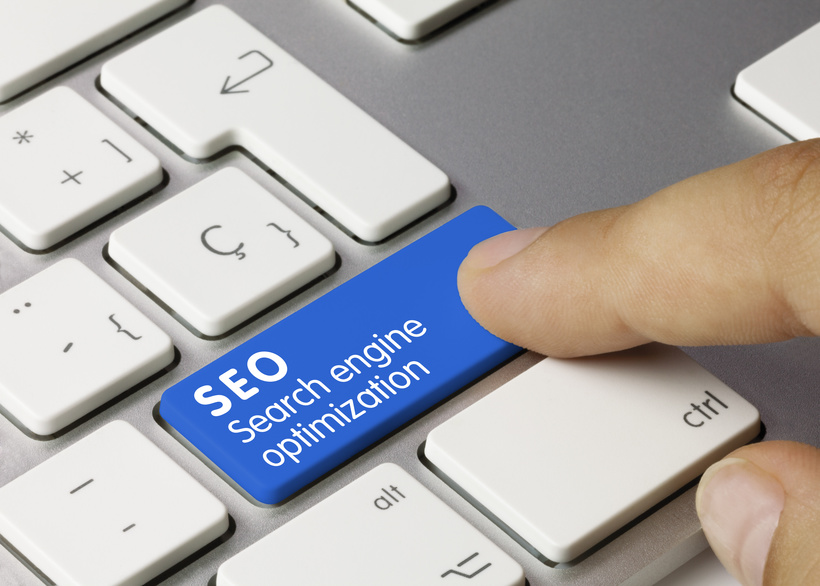
Maybe you have an amazing product. Maybe you think you’ve done all you can to optimize your small business website, but you still aren’t seeing high ranking and the incoming traffic numbers you were expecting. Why? Search engines don’t rank all page results equally.
Although search engines use over 200 ranking factors for each search, there are two ranking factors that give us a sense of how a site might rank in the SERPs (Search Engine Results Pages), they are: domain authority and content.
You need both to rank well and to maintain a high position in the SERPs. But what is good domain authority of a website vs quality page authority? Let’s break both qualifiers down and dig into how search engine’s use them to determine page rank.
What is Domain Authority?
Domain Authority (DA) is a score number (based on a 1-100 ranking scale) used to predict how well a website will rank in a SERP. The higher the score number, the better expected that page is to rank high.
Your website’s DA score is calculated through a variety of other factors such as linking, keyword optimization, content length etc. These individual ranking numbers are put together to come up with a final overall ranking number, that specific Domain Authority.
Once you are aware of a website’s expected Domain Authority, you can compare it to other similar sites to determine where your specific website result will show up. This is incredibly valuable information when doing competitor research and choosing keywords you want to optimize and rank for.
There are several tools you can use to check your DA now! Here are just a few:
It will take time to build up a high Domain Authority score because other optimization factors used to calculate Domain Authority will always be changing as well. Obviously, higher Domain Authority scores are “good” and lower Domain Authority scores are “bad”, but remember that DA is an estimated score, not a finite number. Domain Authority does not, on its own, determine how well you will rank in the search engines.
Your website’s DA score should be used as a directive metric when doing competitor and optimization research, and should be taken into a comprehensive account of all page optimization work you’ve done. Knowing your site’s Domain Authority can help you structure and plan an effective attraction and content marketing strategy, and help you see other page factors you may need to focus on to rank better.
What is Page Authority?
Page Authority (PA) and Domain Authority go hand in hand. Just like DA is the predicted ranking score of an overall website or domain, PA is the predicted ranking score of an individual webpage. Domain Authority and Page Authority are ranked on the same scale, with higher score numbers being sought after as a higher SERP rank expectations.
Additionally, PA rank is also a great comparison metric during competitor research. If you’re in the process of publishing a page or article with a similar topic or content as a competitor, it pays to know their, and your, Page Authority. Getting all the background info you can on a page’s specific metrics can help you find any gaps in optimization or composition work that you can take advantage of on your page. PA gives you a one-up on your competitors so you can take extra steps in optimize your webpages for higher SERP rank.
Consider Page Authority with the same openness you would with Domain Authority. It’s not a concrete number, but more of an educated guess that is prone to fluctuations.
How to Improve Your Domain and Page Authority
Because so many factors and actions are taken into account when calculating your website’s DA and your individual pages’ PA, it can be difficult to identify the crux of them both. But, your main objective to achieve higher Domain Authority and Page Authority scores should be to improve your overall optimization.
If you’ve been in the online marketing world for at least one day, you’re undoubtedly run into a post, a video, or an article about the importance of search engine optimization (SEO) for result visibility.
According to Moz, creating outbound links and gaining backlinks to your website is a critical factor for SEO. Search engines view backlinks as a sort of call out or nod to experts on a specific topic. Therefore, gaining a variety of links for several different sources back to your own website or webpage sends a strong message to search engines that many people find your page helpful, educational, and authoritative on the subject. The more call backs you earn to your website or webpage, the more signals search engines will receive to increase that page’s SERP rank.
Gaining backlinks for a small business can be challenging, but there are steps you can take to better your chances:
- Post your articles or links to your webpages in multiple locations (blog, forums, social media, guest blogging)
- Use several, reputable outbound links in your article or webpage to bigger name (Entrepreneur, Forbes, Harvard Business Review etc.)
- Include backlinks to quality, small business webpages that aren’t direct competitors (they may be more open to return the favor in the future)
Once you develop your brand, publish consistent, quality content, and grow your marketing network, you’ll increase your chances of gaining backlinks because your connections will start to see you as an industry leader.
Of course linking is not all you can do to better your SEO efforts. There are several other factors to take into account and space to take full advantage of on page SEO.
Spaces like your page URL, title tag, and ALT image names are all spaces that are commonly overlooked when it comes to SEO. You can also use the “searches related to” section at the bottom of search engines like Google to find related keywords that you can also include and optimize for in your articles and webpages. You can use Google Search Console to discover what keyterms your webpage is being found under to determine if you’ve optimized for the correct keywords to reach your target audience.
In Conclusion
Domain Authority and Page Authority are closely linked to each other and are both equally important metrics to track your website and webpage success. Using the tips above, you can track and then work to improve both so your page stays in the top section of the SERP.




